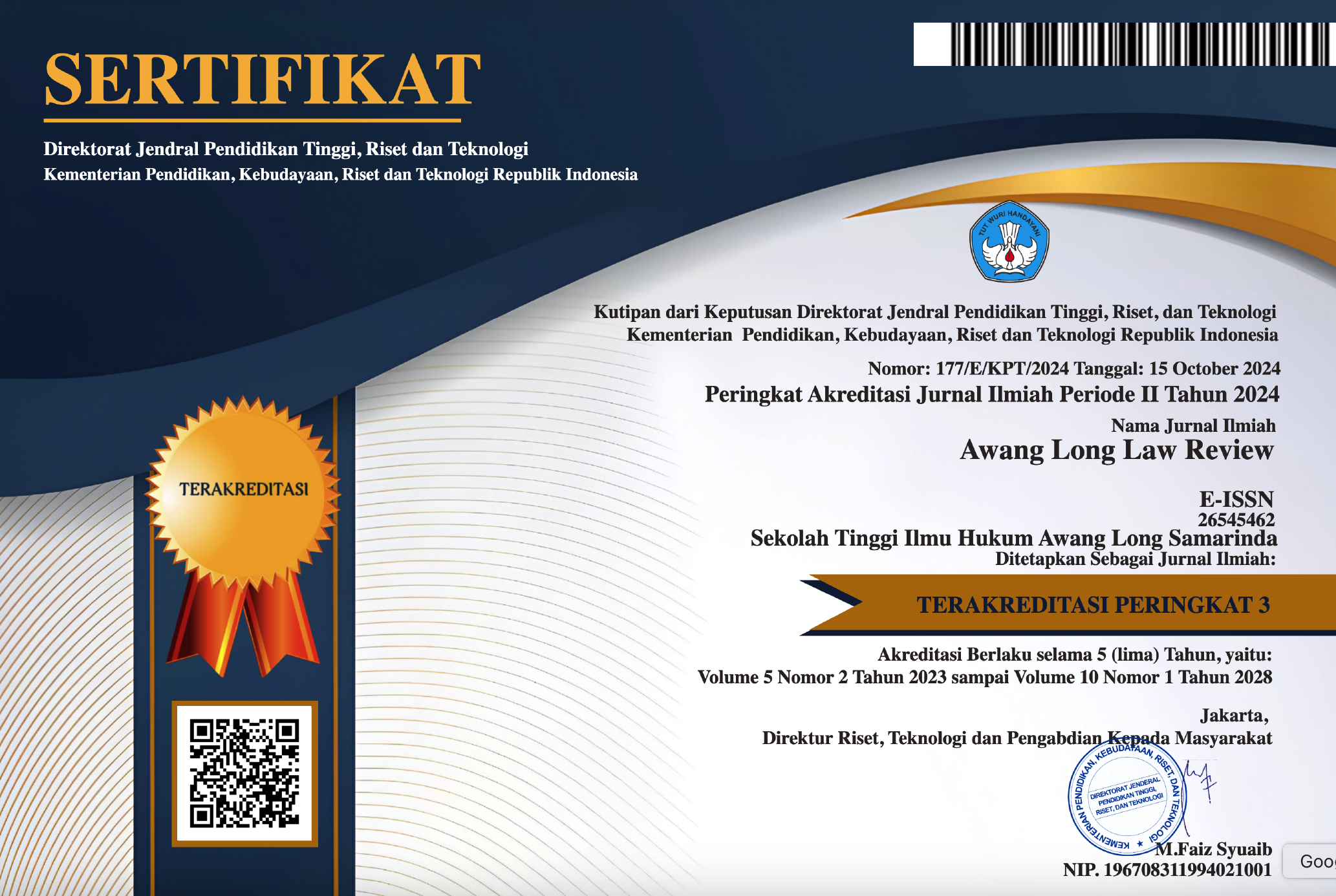THE EFFECTIVENESS OF THE PROSECUTOR'S AUTHORITY AS AN INVESTIGATOR OF ALLEGED CORRUPTION OFFENSES
Abstract
This study aims to determine the effectiveness of the investigation into alleged corruption and the factors that influence the effectiveness of the investigation into alleged corruption. The research method used in writing this is an empirical method, with secondary and primary data coverage. The results of this study indicate that the effectiveness of the investigation into alleged corruption is still not effective, this can be seen from the existence of areas in investigations that have not been completed due to several obstacles in adjusting to the material elements of corruption and there are several factors that influence the effectiveness of the investigation into alleged corruption, including namely; legal substance, legal structure, facilities and infrastructure, and legal culture of the four factors that have the most influence on the effectiveness of the investigation of suspected corruption is the legal structure of calculations Auditor to BPK/BPKP. Recommendations for research on all forms of obstacles for the effectiveness of investigations into criminal acts of corruption committed by the investigating prosecutors so that they are even more efficient in finding evidence for the sake of accelerating investigations, increasing the number of prosecutors' personnel, and it is necessary to procure a new profession of prosecutors who are authorized in auditing (auditor certification), so that they have special expertise in financial auditing without Waiting too long for the audit results of other institutions for the sake of efficiency and acceleration of the next law enforcement process. Keywords: Investigative effectiveness, corruption.
Downloads
References
AM Rieker M, Abd. Rahman, Baharuddin Badaru. (2020). Investigation techniques carried out by the prosecutor's office in the context of eradicating corruption. Journal of lex generalis, 3 (4), 560.
Bakker, FF, Immigration, P., & Prasetio, DE PLURALISM OF INVESTIGATIVE AUTHORITY IN ERADICING CRIMINAL ACTS OF CORRUPTION IN INDONESIA. https://doi.org/10.24843/KS.2021.v10.i01.p13
Chandra, E. EFFECTIVENESS OF INVESTIGATIONS OF CORRUPTION IN PROCUREMENT OF GOODS AND SERVICES IN THE SULTENG POLDA. Tadulako Master Law Journal , 5 (3), 350-362.
Ismail, M., & Subroto, G. (2021). The Effectiveness of Civil Servant Investigators in Enforcing Illegal, Unreported and Regulated Laws in Indonesia. VOICE JUSTICE: Journal of Law and Justice , 5 (1), 28-43.
Muhammad Yusni. (2020). Justice and Eradication of Corruption Crimes from the Prosecutor's Perspective. Airlangga University.
Mulatua, S., & Nggeboe, F. (2019). Effectiveness of Additional Criminal Replacement Money in Corruption Crimes. Legality: A Journal of Law , 9 (1), 46-79. http://dx.doi.org/10.33087/legalitas.v9i1.142
Nurdjana, et al (Ed). (2005). Corruption & Illegal Logging in Decentralized Systems. Yogyakarta: Learning Library.
Pratama, NI (2021). Coordination Mechanisms in Handling Corruption Crimes (Study at the Resort Police of the Big City of Medan) vvv. Airlangga Development Journal , 5 (2), 80-100. DOI: 10.20473/adj.v5i2.31901
Rocketza, Alfia Risky Ayu. (2014). Authority of the Prosecutor as an Investigator in Special Crimes in Corruption Cases. Corruption crimes, Legal science. Yogyakarta. Library.kpk.
Salsabila, S., & Wahyudi, ST (2022). The Role of the Prosecutor's Office in Resolving Corruption Crime Cases Using a Restorative Justice Approach. Legal Issues , 51 (1), 61-70. https://doi.org/10.14710/mmh.51.1.2022.61-70
State, G. (2020). Reinvestigation of Corruption Crime Cases Which Have Been Discontinued by the Prosecutor's Office Based on the Discovery of New Evidence. Hero's Journal , 3 (2), 7-18. https://doi.org/10.31004/jp.v3i2.939
Zulkarnain. (2013). Criminal Justice Practice A Practical Guide to Understanding Criminal Justice. Malang: Setara Press.
Copyright (c) 2023 Baharuddin Badaru

This work is licensed under a Creative Commons Attribution-ShareAlike 4.0 International License.







